During a shift on an offshore vessel in the Ba Ria – Vung Tau sea area, an Indian electrician suddenly developed severe shortness of breath before collapsing. After initial first aid proved unsuccessful, the crew rushed him to a nearby hospital. He was then urgently transferred to FV Hospital, arriving in a critical condition with myocardial infarction complicated by cardiogenic shock and cardiac arrest. Within just 30 minutes in the Cathlab, FV’s cardiologists carried out emergency intervention that brought him back from the brink of death.
Statistics show that emergency cardiac transfers to FV Hospital rise by as much as 30% each year, reflecting its position as one of Vietnam’s leading centres for interventional cardiology. The hospital maintains a dedicated 24/7 “Golden Hour” heart attack response team, operating under the “70-minute golden protocol,” to ensure patients receive rapid treatment, recover sooner, and minimise the risk of complications.
Sudden Cardiac Collapse During an Offshore Work Shift
FV Hospital doctors reported that on the afternoon of 29 August, while working on a vessel, Mr P.A., a 49-year-old Indian electrician, suddenly developed severe chest pain, shortness of breath, and collapsed. The ship’s medical staff attempted resuscitation with chest compressions, multiple defibrillations, and intubation. However, given the critical nature of his condition, he was evacuated to shore for emergency care at a local hospital.
Doctors diagnosed him with a myocardial infarction and arranged for his immediate transfer to FV Hospital, which is equipped with a Cathlab and advanced facilities for managing complex cardiac cases.
After more than three hours of combined transport and resuscitation, Mr P.A. arrived at FV Hospital around 9 pm that evening. A rapid bedside ultrasound confirmed a critical condition: myocardial infarction complicated by cardiogenic shock and cardiac arrest. Dr Ho Minh Tuan, PhD, Head of Cardiology & Interventional Cardiology, explained that cardiogenic shock occurs when the heart loses its ability to pump effectively, causing blood to back up in the lungs and often requiring intubation or high-dose oxygen support.
20 Critical Minutes in the Cathlab: Restoring the Heartbeat
The team led by Ho Minh Tuan MD, PhD swiftly performed a percutaneous coronary intervention with the support of a Digital Subtraction Angiography (DSA) system and intravascular imaging tools, including OCT and IVUS. A catheter was inserted from the patient’s arm into the heart to precisely locate the blocked coronary artery. Dr Tuan quickly deployed a stent at the site of the obstruction. Blood flow to the heart was immediately restored, and the patient’s ECG readings and blood pressure gradually stabilised. The entire Cathlab procedure was completed in just over 20 minutes.
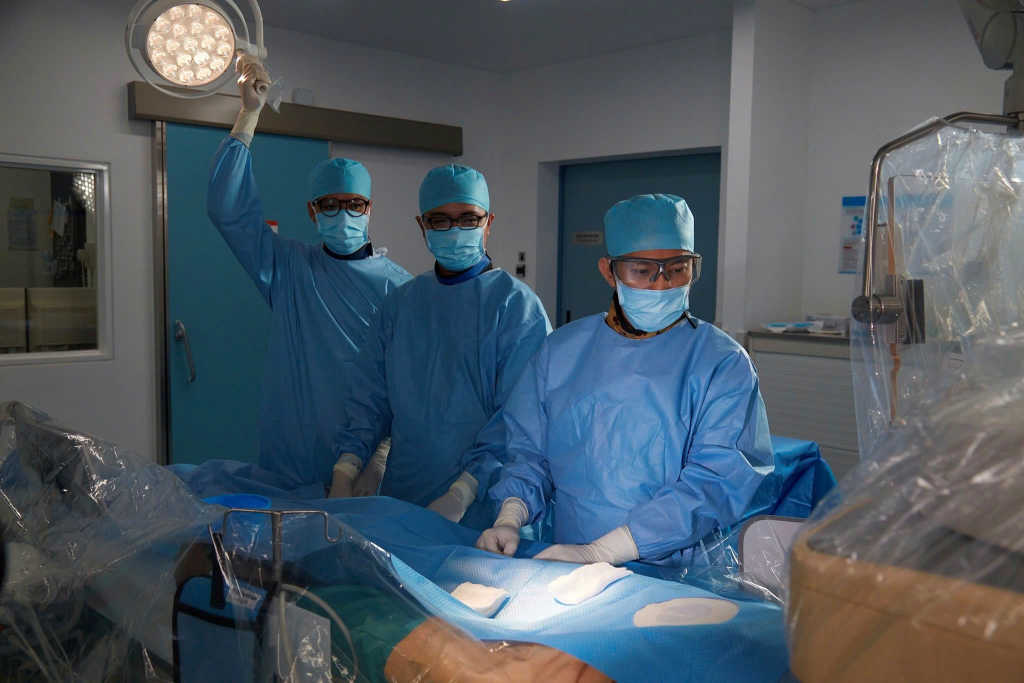
Immediately after the procedure, the patient was admitted to intensive care. By the following day, he was successfully extubated. Ten days later, he was discharged in good health and returned home on a commercial flight without requiring any additional medical support. Dr Tuan confirmed that the patient’s heart function had nearly returned to normal.
“The doctors at FV are excellent! The nurses took very good care of me. For me, FV Hospital is number one!” Mr P.A. said with emotion.
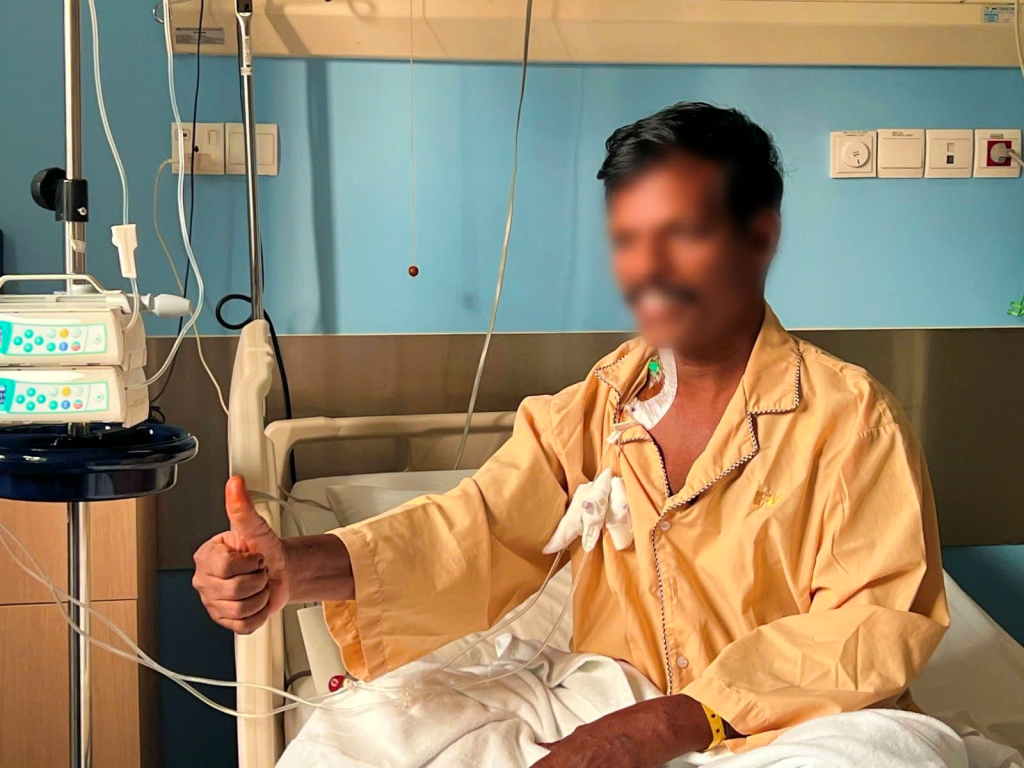
Successful Emergency Treatment of Multiple Heart Attack Cases Thanks to the “70-minute Golden Protocol”
Myocardial infarction is among the leading causes of death worldwide. According to the World Health Organisation (WHO), in 2022 an estimated 19.8 million people died from cardiovascular diseases, accounting for around 32% of all global deaths. Of these fatalities, about 85% were attributed to stroke and myocardial infarction.
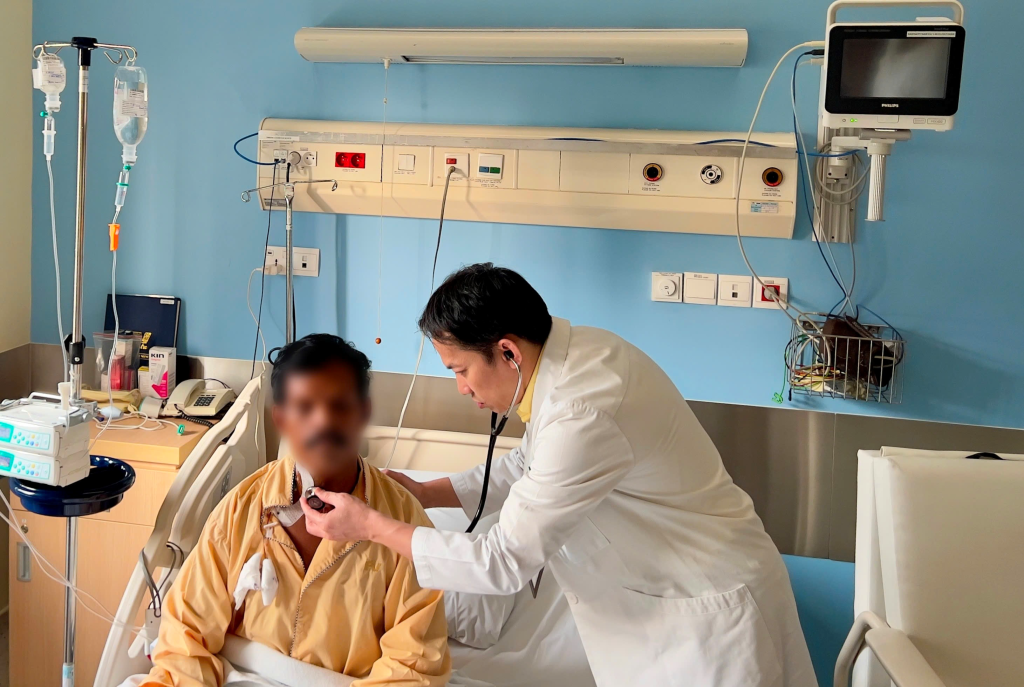
The remarkable recovery of critically ill heart attack patients, such as Mr P.A., is made possible by FV Hospital’s rapid-response system, led by the 24/7 “Golden Hour” emergency cardiac team operating under the hospital’s “70-minute golden protocol.”
In cardiac emergencies, every minute matters. The time taken for intervention determines not only the patient’s chances of survival but also their recovery and long-term risk of complications. According to guidelines from the American and European Cardiology Societies, the “golden time” for cardiac emergencies, from arrival at the emergency room to the reopening of the blocked artery, is 90 minutes.
“At FV, we have reduced the emergency response time to restore blood flow to the heart to just 70 minutes. For pre-notified transfer cases, the procedure can be completed within 25–30 minutes,” Dr Tuan explained.
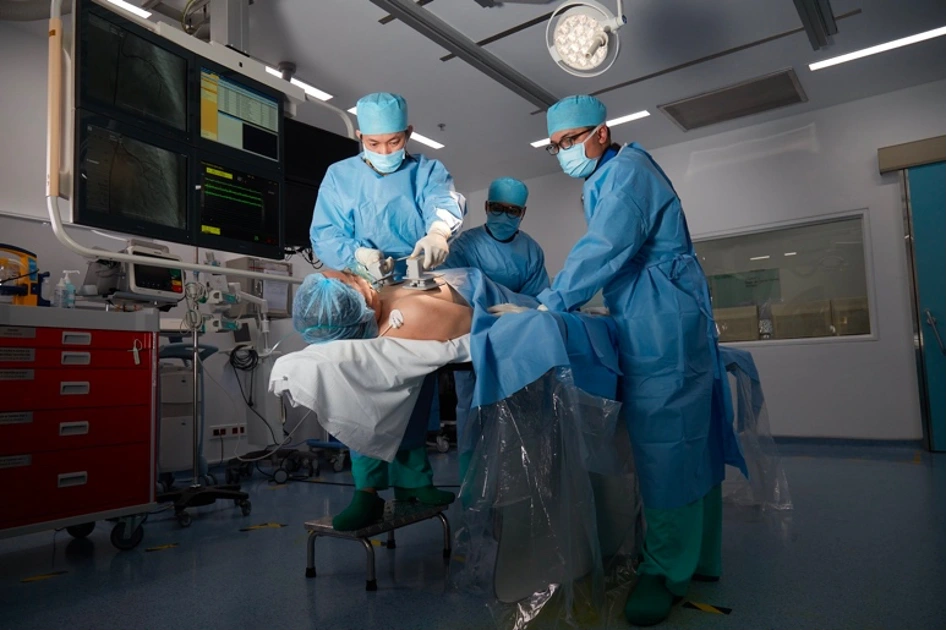
With its pioneering expertise in advanced technology and as one of the largest cardiology centres in Vietnam, FV Hospital regularly receives emergency cases transferred from clinics and hospitals across Ho Chi Minh City and neighbouring provinces.
“The number of patients referred from external clinics and hospitals to FV’s Cardiology Department increases by 15% annually. For heart failure and cardiogenic shock interventions, the increase is up to 30%. Medical teams at other facilities are well aware of the interventional cardiology techniques FV can provide, the high level of expertise of our emergency teams, and our patient recovery care capabilities. Therefore, in critical cases, patients are automatically transferred to FV, improving the efficiency of both emergency response and treatment,” explained Dr Ho Minh Tuan.
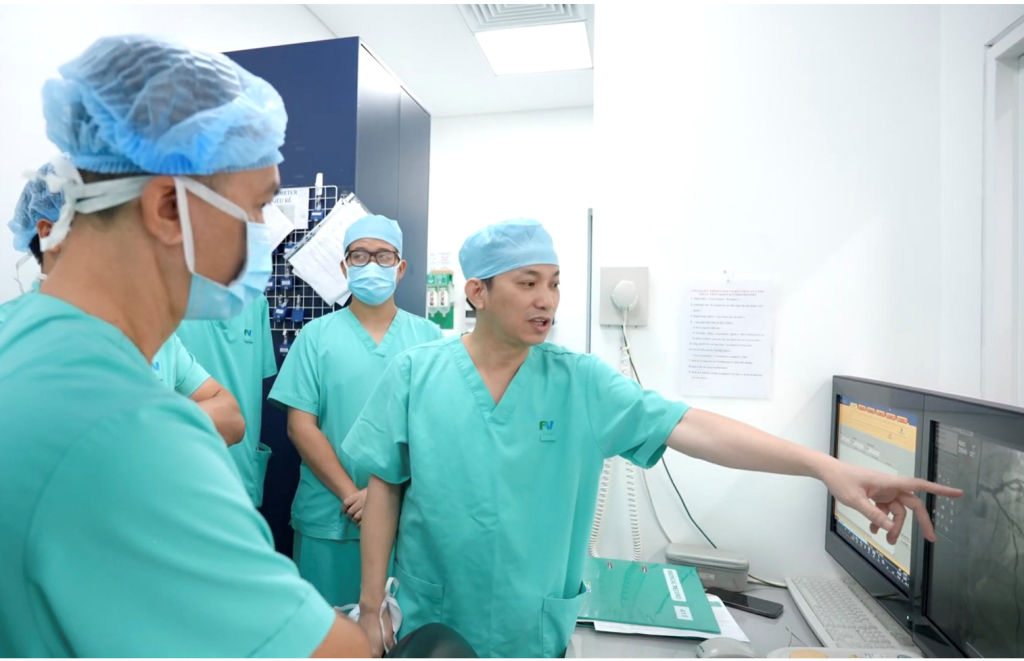

 Vi
Vi 












